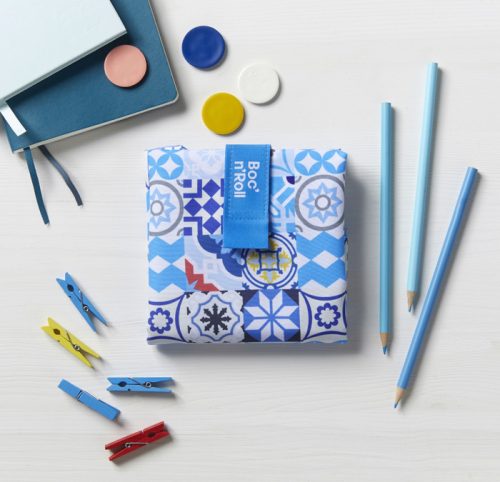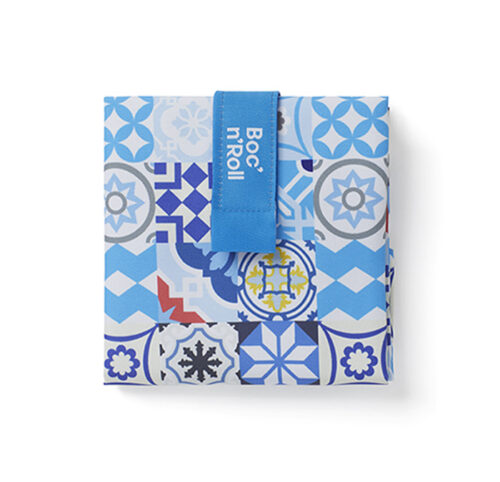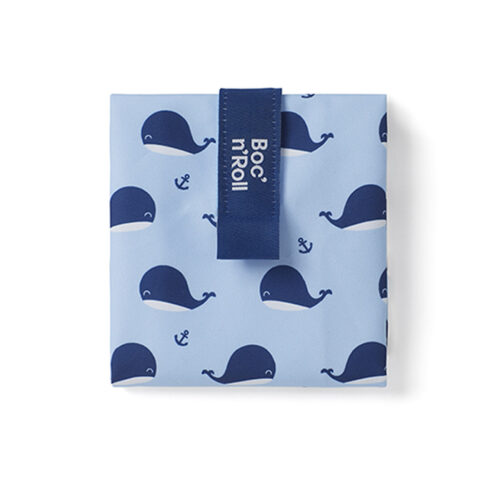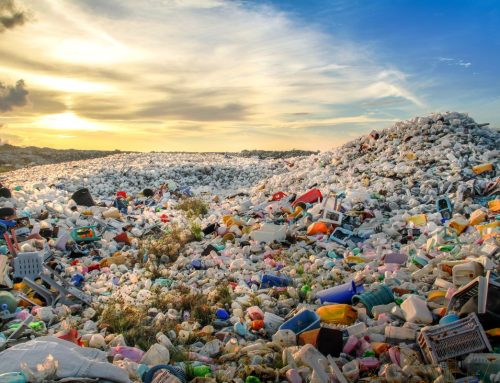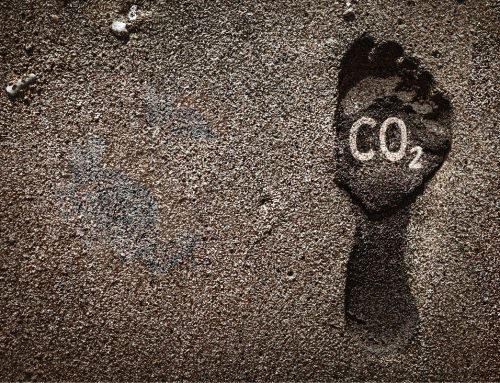Zero waste products refer to items designed and created with the intention of minimizing or eliminating waste during their production, use, and disposal phases.
These products are often associated with practices like zero waste shopping and reduce the environmental impact by either being completely biodegradable, compostable, or by encouraging reusability, thus preventing waste from ending up in landfills or polluting the environment.
Some examples of zero waste products include:
- Reusable Items: Products that can be used repeatedly, reducing the need for single-use items. For examples:
- Reusable shopping bags, produce bags, and mesh bags for groceries.
- Stainless steel, glass, or bamboo straws instead of plastic ones.
- Reusable water bottles and coffee cups instead of disposable ones.
- Cloth napkins or handkerchiefs to replace paper tissues.
- Compostable and Biodegradable Products: Items made from materials that break down naturally, reducing environmental impact. For examples:
- Compostable or biodegradable trash bags and food packaging made from plant-based materials.
- Biodegradable bamboo toothbrushes or compostable floss picks.
- Biodegradable plates, utensils, and cups made from materials like bamboo, sugarcane, or cornstarch.
- Products Aimed at Reducing Waste: Items designed to reduce waste in specific areas. For examples:
- Reusable snack bags and sandwich wrappers like our products, Boc’n’Roll and Snack’n’Go as alternatives to plastic cling film.
- Refillable containers for household cleaning products or personal care items.
- Bulk-bin shopping containers or jars for purchasing items in bulk, reducing packaging waste.
- Durable and Repairable Goods: Products designed for durability and repair, encouraging a longer lifespan. For examples:
- Repairable electronics or appliances with replaceable parts.
- Clothing made from high-quality, long-lasting materials and offering repair services.
- Upcycled or Recycled Products: Items made from recycled or upcycled materials to minimize waste. For examples:
- Upcycled clothing made from reclaimed fabrics or materials.
- Recycled paper products or notebooks made from post-consumer waste.
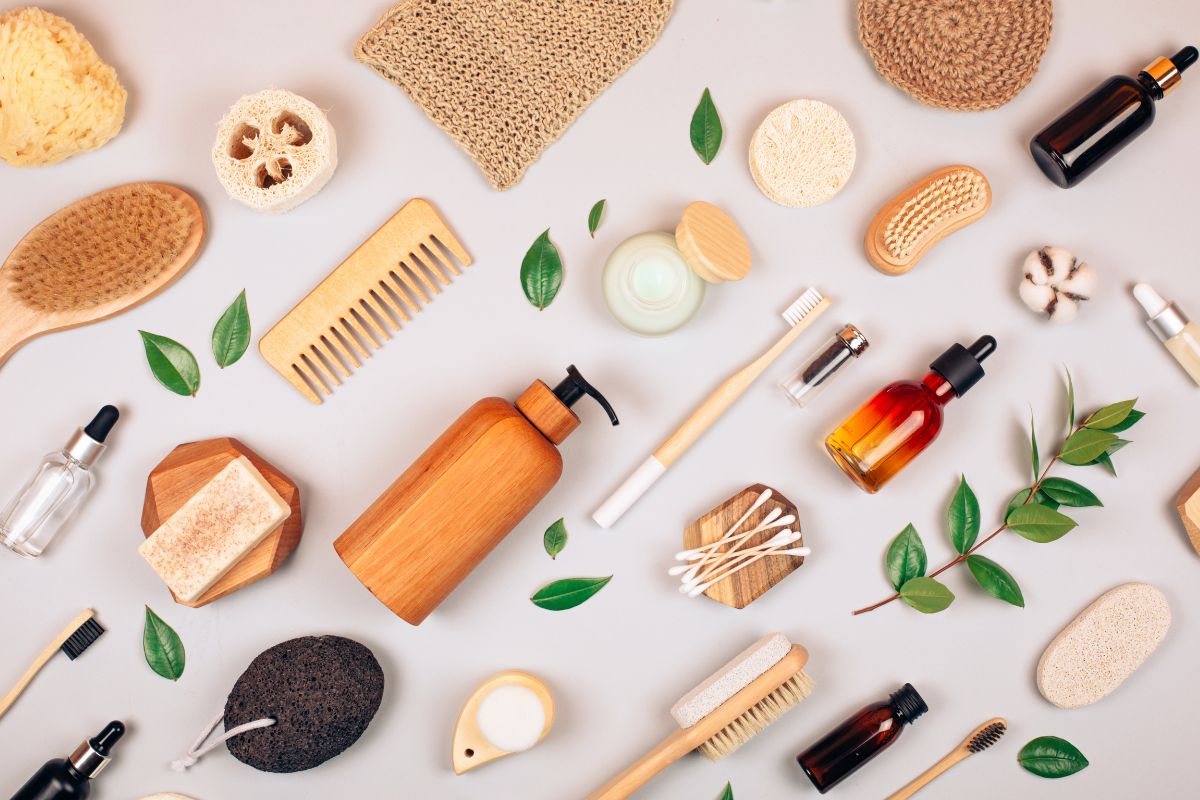
Discover the zero waste products
-
Reusable Water Bottles
- Benefits: Reusable water bottles are durable, convenient, and reduce the need for single-use plastic bottles. They come in various materials like stainless steel, glass, or BPA-free plastics, offering options that suit different preferences.
- Impact: By using a reusable water bottle, individuals can significantly cut down on the consumption of disposable plastic bottles, thereby reducing plastic pollution in oceans and landfills.
-
Reusable Shopping Bags
- Benefits: Sturdy reusable shopping bags are eco-friendly alternatives to single-use plastic bags. They are often made from durable materials like cotton, canvas, or recycled fabrics, offering a more sustainable way to carry groceries and goods.
- Impact: Reusable shopping bags help decrease the demand for disposable plastic bags that contribute to environmental pollution and harm wildlife.
-
Beeswax Wraps or Silicone Lids
- Benefits: Beeswax wraps and silicone lids are reusable and washable alternatives to plastic cling wrap. They help preserve food freshness without the need for disposable plastic wrap, reducing plastic waste in the kitchen.
- Impact: These alternatives promote a reduction in single-use plastic consumption, contributing to a decrease in plastic waste that can end up in landfills and oceans.
-
Reusable Straws
- Benefits: Stainless steel, glass, bamboo, or silicone straws are washable and reusable, offering an eco-friendly substitute for single-use plastic straws. They can be carried easily and used repeatedly.
- Impact: By choosing reusable straws, individuals help combat the environmental impact of plastic straws, which often contribute to marine pollution and harm to marine life.
-
Compostable or Bamboo Toothbrushes
- Benefits: Compostable or bamboo toothbrushes feature biodegradable materials that can be composted after use, reducing plastic waste. They offer a sustainable option for dental care.
- Impact: These toothbrushes help reduce plastic pollution by replacing conventional plastic toothbrushes that may end up in landfills and oceans.
-
Reusable Food Containers
- Benefits: Durable containers made from stainless steel or glass are suitable for storing food and reducing reliance on single-use plastic containers or packaging.
- Impact: By using reusable food containers, individuals can significantly minimize the amount of plastic waste generated from disposable packaging.
-
Cloth Produce Bags
- Benefits: Reusable cloth bags made from materials like cotton or mesh are excellent alternatives to single-use plastic produce bags. They are washable, durable, and can be used repeatedly.
- Impact: Using cloth produce bags reduces the consumption of disposable plastic bags, contributing to a reduction in plastic pollution.
-
Reusable Coffee Cups
- Benefits: Reusable coffee cups made from materials like stainless steel, glass, or bamboo are convenient for on-the-go use and help replace disposable coffee cups.
- Impact: By using these cups, individuals reduce the environmental impact of single-use coffee cups that often end up in landfills due to their non-recyclable or non-biodegradable nature.
-
Safety Razors
- Benefits: Stainless steel safety razors offer a long-lasting shaving solution, replacing disposable plastic razors that contribute to plastic waste.
- Impact: Using safety razors reduces the amount of plastic entering landfills and oceans, promoting a more sustainable grooming routine.
-
Menstrual Cups or Reusable Cloth Pads
- Benefits: Menstrual cups and reusable cloth pads are eco-friendly alternatives to disposable menstrual products. They are washable, reusable, and offer a cost-effective and sustainable option for managing periods.
- Impact: These products significantly reduce the environmental impact of disposable menstrual items, which contribute to landfill waste and environmental pollution.
-
Reusable Makeup Remover Pads
- Benefits: Washable cloth pads or organic cotton pads can replace single-use makeup wipes, offering a reusable option in skincare routines.
- Impact: Reusable makeup remover pads help reduce the consumption of disposable wipes, which contribute to waste accumulation and environmental pollution.
-
Refillable Household Cleaning Products
- Benefits: Refillable containers for household cleaning products reduce the need for purchasing new plastic bottles each time, encouraging a more sustainable approach to cleaning.
- Impact: By refilling containers instead of buying new ones, individuals minimize the amount of plastic waste generated from cleaning products.
-
Plant-Based Compostable Trash Bags
- Benefits: Environmentally Friendly: Compostable bags made from plant-based materials offer a greener alternative to conventional plastic bags, reducing reliance on non-biodegradable plastics.
- Impact: Reduced Landfill Waste: These bags break down naturally, decreasing the amount of plastic waste in landfills, as they decompose much faster than traditional plastic bags, lowering environmental impact.
-
Stainless Steel Food Storage Containers
- Benefits: Durable and Reusable: Stainless steel containers are sturdy and long-lasting, providing a sustainable way to store food without relying on disposable plastic bags or wraps.
- Impact: Reduction of Single-Use Plastics: By eliminating the need for disposable packaging, these containers significantly reduce plastic waste, promoting a more sustainable lifestyle.
-
Zero Waste Skincare
- Benefits: Zero waste skincare involves using products that minimize packaging waste, often focusing on refillable, compostable, or plastic-free containers. Common items include bar cleansers, solid moisturizers, refillable facial oils, and reusable applicators like bamboo cotton rounds. These products are typically made with natural, non-toxic ingredients and come in sustainable packaging such as glass jars, metal tins, or compostable cartons.
- Impact: Adopting zero waste skincare reduces plastic consumption and packaging waste commonly associated with conventional skincare products. It also supports eco-friendly beauty brands and helps shift the industry toward more sustainable production practices, promoting environmental responsibility in daily self-care routines.
-
Organic Cotton Dishcloths
- Benefits: Reusable and Biodegradable: Washable organic cotton dishcloths replace single-use sponges or paper towels, offering a more sustainable option for kitchen cleaning.
- Impact: Waste Reduction: By substituting disposable cleaning materials, these cloths help decrease household waste, contributing to a cleaner environment.
-
Bamboo or Hemp Kitchen Utensils
- Benefits: Eco-Friendly Alternatives: Sustainable utensils made from bamboo or hemp offer durable, biodegradable options compared to conventional plastic utensils.
- Impact: Reduction of Plastic Waste: By opting for biodegradable alternatives, users minimize the environmental impact of plastic utensils and contribute to a cleaner ecosystem.
-
Refillable Stainless Steel or Glass Pump Dispensers
- Benefits: Reduction of Single-Use Plastics: Refillable dispensers for personal care products eliminate the need for disposable plastic bottles, offering a sustainable solution.
- Impact: Plastic Waste Minimization: By encouraging refillable containers, this practice significantly reduces the use of single-use plastic bottles, minimizing plastic pollution.
-
Reusable Silicone Baking Cups
- Benefits: Reusable and Heat-Resistant: Silicone baking cups replace disposable liners, offering a durable and eco-friendly solution for baking needs.
- Impact: Waste Reduction: By eliminating the need for disposable liners, these cups reduce paper waste and promote eco-conscious baking practices.
-
Natural Loofah or Bamboo Shower Scrubs
- Benefits: Biodegradable Alternatives: Biodegradable shower scrubs made from natural materials replace synthetic sponges, reducing plastic waste.
- Impact: Less Plastic Pollution: By opting for biodegradable materials, users contribute to reducing plastic waste in personal care routines, promoting a cleaner environment.
-
Reusable Glass or Stainless-Steel Straws with Cleaning Brush
- Benefits: Durable and Reusable: Glass or stainless-steel straws replace single-use plastic ones, offering a sustainable and washable alternative.
- Impact: Plastic Waste Reduction: By choosing reusable straws, individuals contribute to reducing plastic straw pollution that harms marine life and ecosystems.
-
DIY Beeswax or Vegan Soy Wax Candle Kits
- Benefits: Sustainable Candle-Making: DIY kits provide sustainable options for creating homemade candles, reducing reliance on disposable candles and packaging.
- Impact: Less Packaging Waste: By making candles at home, users reduce packaging waste and contribute to sustainable practices.
-
Reusable Food Wrapping Mats
- Benefits: Alternative to Disposable Wraps: Reusable mats replace disposable foil or plastic wrap, offering a sustainable option for food covering.
- Impact: Reduction of Single-Use Plastics: By using reusable wraps, individuals minimize plastic waste generated from disposable food packaging.
-
Biodegradable Bamboo Cotton Swabs
- Benefits: Biodegradable Material: Bamboo or paper stem swabs offer an environmentally friendly alternative to traditional plastic swabs.
- Impact: Plastic Pollution Reduction: By using biodegradable materials, users contribute to reducing plastic pollution in personal care routines.
-
Reusable Silicone Stretch Lids
- Benefits: Flexible and Reusable: Stretchable silicone lids replace disposable plastic wraps, providing an airtight, washable, and reusable option.
- Impact: Plastic Waste Minimization: By eliminating the need for disposable wraps, these lids significantly reduce plastic waste in households.
-
Recycled Glass Mason Jars for Bulk Shopping
- Benefits: Reusable Packaging: Recycled glass jars provide a sustainable alternative for bulk purchases, reducing reliance on single-use packaging.
- Impact: Waste Reduction: By encouraging reusable jars, users contribute to reducing disposable packaging waste in shopping routines.
-
Eco-Friendly Biodegradable Phone Cases
- Benefits: Sustainable Protection: Biodegradable phone cases offer a zero-waste option for protecting electronic devices, reducing plastic waste.
- Impact: Reduced Plastic Pollution: By opting for biodegradable materials, users minimize plastic pollution and support eco-friendly tech accessories.
-
DIY Reusable Food Wrap Kits
- Benefits: Alternative to Plastic Wraps: DIY kits offer sustainable options for creating reusable food wraps, reducing reliance on disposable plastic wrap.
- Impact: Plastic Waste Reduction: By making and using reusable wraps, individuals actively contribute to minimizing plastic waste in daily food storage and preservation practices.
-
Recycled Paper Notebooks
- Benefits: Notebooks made from recycled paper reduce the need for new paper production. They are eco-friendly and contribute to reducing deforestation.
- Impact: Using recycled paper notebooks minimizes paper waste and promotes sustainable paper usage.
-
Biodegradable Dental Floss in Reusable Containers
- Benefits: Biodegradable dental floss made from natural fibers comes in refillable containers, offering a sustainable alternative to conventional plastic floss.
- Impact: Using biodegradable floss reduces plastic waste and provides an eco-friendly option for dental hygiene.
-
Reusable Silicone Cupcake Liners
- Benefits: Silicone cupcake liners or baking cups replace disposable paper liners for baking cupcakes or muffins. They are washable and heat-resistant.
- Impact: By eliminating the need for single-use paper liners, they reduce paper waste in baking practices.
A good idea: Use a Boc’n’Roll
The Boc’n’Roll is the best eco-friendly and sustainable alternative to single-use plastic wraps or bags, promoting reduced waste generation.
Boc’n’Roll and Its Role in Waste Reduction
- Reusable Design: The Boc’n’Roll is a reusable food wrap made from materials like TPU and polyester fabric with a water-resistant coating. Its reusable nature allows individuals to replace disposable plastic wraps or bags for sandwiches and snacks.
- Reduction of Single-Use Plastics: By using the Boc’n’Roll, individuals can reduce their reliance on single-use plastics. It helps prevent the constant consumption and disposal of single-use packaging, significantly decreasing the amount of plastic waste generated.
- Promotion of Sustainable Habits: The product encourages a shift toward more sustainable habits by promoting reuse. Users can wash and reuse the Boc’n’Roll multiple times, which contributes to lessening the environmental impact of single-use plastics.
- Conscious Consumer Choice: Choosing products like the Boc’n’Roll demonstrates a conscious effort to minimize waste and make environmentally responsible choices in everyday life.
If you are looking to give a present to someone and you want it to be zero-waste, visit our post “Zero-waste gift ideas“.
Where can we find zero waste products?
You can find zero waste products at various places, both online and in physical stores that specialize in eco-friendly and sustainable goods. Here are some places where you can typically find a wide range of zero waste products:
Zero Waste Stores and Eco Boutiques
Many cities have dedicated zero waste stores or eco boutiques that focus on providing sustainable, plastic-free, and environmentally friendly products. These stores often carry a diverse range of items, from reusable bags and containers to personal care products and kitchen utensils.
Online Retailers
Numerous online platforms specialize in selling zero waste products. Websites like Package Free Shop, EarthHero, Life Without Plastic, and others offer a vast array of eco-friendly items and provide convenient options for purchasing zero waste products from the comfort of your home.
Health Food Stores and Co-ops
Health food stores and cooperative markets often stock zero waste products in addition to their organic food selections. These stores may offer items such as reusable bags, stainless steel containers, bulk foods, and eco-friendly household items.
Local Farmers’ Markets and Artisan Fairs
Farmers’ markets and artisan fairs are great places to find homemade or locally crafted zero waste products. Here, you might discover unique, handmade items such as beeswax wraps, natural soaps, reusable cloth items, and more.
Department Stores and Larger Retailers
Some larger retailers or department stores have sections dedicated to eco-friendly products or sustainable living. They may offer a selection of zero waste items alongside their traditional products.
Thrift Shops and Secondhand Stores
While not exclusively focused on zero waste, thrift shops and secondhand stores often have a variety of gently used items that can be repurposed, reducing the need for new purchases and contributing to a circular economy.
Local Craftspeople and Artisans
Local artisans and craftsmen may create zero waste products such as handmade utensils, cloth bags, natural beauty products, and more. Visiting local craft markets or connecting with artisans in your community can yield unique zero waste finds.
Make zero waste products in your home!
Creating zero waste products at home is an excellent way to reduce your environmental impact. Here are some ideas for making zero waste products in your house:
-
Homemade Cleaning Products
- All-Purpose Cleaner: Mix equal parts of water and white vinegar in a spray bottle. Optionally, add a few drops of essential oils like tea tree, lemon, or lavender for fragrance and extra cleaning power.
- DIY Scrub: Combine baking soda with a small amount of water to create a paste. This gentle abrasive mixture works well for scrubbing sinks, tubs, and other surfaces.
- DIY Homemade Laundry Detergent: Making laundry detergent from natural ingredients like soap flakes, baking soda, and essential oils reduces reliance on store-bought detergent packaged in plastic bottles.
-
Reusable Cloth Items
- DIY Cloth Napkins: Cut old fabric into squares or rectangles and hem the edges for reusable napkins. You can repurpose old bed sheets, tablecloths, or fabric remnants.
- Handkerchiefs: Cut soft fabric into squares and hem the edges to create reusable handkerchiefs instead of using disposable tissues.
-
Food Storage Alternatives
- DIY Beeswax Wraps: Cut cotton fabric into desired sizes, melt beeswax, and brush it onto the fabric. Heat in the oven briefly to set. These wraps are reusable and moldable to cover food items.
- Homemade Produce Bags: Sew cloth produce bags from old fabric or repurpose pillowcases. Use these bags for buying fruits and vegetables instead of single-use plastic bags.
-
Personal Care Products
- Homemade Toothpaste: Mix baking soda with coconut oil and a few drops of peppermint essential oil to create a natural toothpaste. Adjust the consistency by adding more oil or baking soda as needed.
- DIY Deodorant: Blend coconut oil, arrowroot powder or cornstarch, baking soda, and essential oils of your choice. Store in a reusable jar for an effective homemade deodorant.
-
Composting and Food Scraps
- Compost Bin: Start a composting system in your backyard or use a composting bin to collect food scraps like fruit and vegetable peels, coffee grounds, and eggshells. Composting reduces waste and creates nutrient-rich soil.
-
Reusable Containers and Utensils
- Repurposed Jars: Wash and sterilize glass jars from food products to store bulk items such as grains, legumes, or spices. Label them for easy identification.
- Homemade Utensils: Carve wooden utensils from fallen branches or repurpose materials like bamboo to create reusable cutlery. Sand them smooth for practical use.
-
DIY Personal Items
- Reusable Makeup Remover Pads: Cut soft fabric into small squares or circles and sew them together in pairs. Use these as reusable makeup remover pads and wash them after use.
- Homemade Lip Balm or Salve: Melt beeswax, mix with coconut oil or shea butter, and add essential oils for fragrance. Pour the mixture into reusable containers for homemade lip balms or skin salves.
-
Sustainable Crafts
- Upcycled Crafts: Use old newspapers or magazines for papier-mâché projects or repurpose cardboard boxes into storage organizers. Get creative and turn unwanted items into new household items.
- Repurposed Furniture: Refurbish old furniture by sanding, repainting, or reupholstering instead of disposing of them. You can also repurpose furniture for different uses in your home.
-
Other zero waste products to make at home
- DIY Natural Insect Repellent: Make a natural bug repellent using essential oils like citronella, lavender, or eucalyptus mixed with witch hazel or distilled water in a spray bottle.
- DIY Natural Air Fresheners: Combine water with citrus peels, herbs like rosemary or lavender, and spices (cinnamon sticks, cloves) in a pot. Simmer on the stove for a natural, fragrant air freshener.
- DIY Homemade Beeswax Candles: Making candles at home using beeswax reduces the reliance on store-bought candles packaged in plastic or non-biodegradable materials.
At Roll’eat we hope that with all these zero waste product ideas, you will find the ones that work best for you and start taking care of the planet with us.

